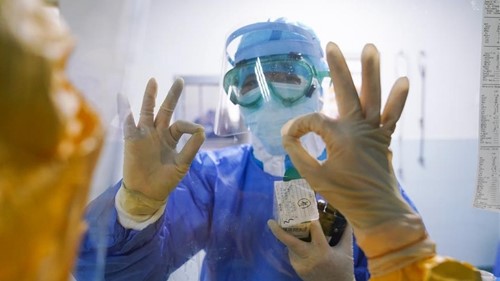
File photo: Xinhua
Do farts spread the COVID-19 virus? Pants work just fine to cut off novel coronavirus transmission in farts, a Beijing district disease control center announced on Sunday.
In a lengthy and seemingly humorous yet serious article on its WeChat account, the Center for Disease Control and Prevention (CDC) of Tongzhou district in Beijing clarified that farts, normally, do not constitute another transmission route of COVID-19, unless someone takes a good and rather close sniff of gas from a pantless patient.
The comments from the Tongzhou district CDC were made in response to netizens' recent concerns that infected patients may spread the disease via passing gas. The concerns were prompted by the latest research findings from a research team led by Chinese top medical adviser Zhong Nanshan which suggested that they had isolated novel coronavirus strains from samples of infected patients' feces and urine.
The findings made some worry that the virus is too "toxic" that farts could be a new transmission route.
Some anxious individuals also called for mass production of N95 facial mask-like protection for their bottoms.
The Tongzhou district CDC said it had clearly done their homework before writing the article, and they cited a fart experiment carried out by Karl Kruszelnicki and Luke Tennent a couple of years ago. Their findings were published on discovermagazine.com with the conclusion that pants can effectively screen out germs.
That is to say, as long as everyone is wearing their pants, there is no need to be worried that passing gas would cause a micro biological contamination risk.
The Tongzhou authority drew a conclusion at the bottom of the article stating that it's safe to say that farts will not transmit the novel coronavirus provided that pants are being worn.
But if the infected patient were not wearing their pants, and they released a large amount of gas, and someone else happened to be in the vicinity and took a close and hard sniff at the gas, anything could be possible, the article said.


